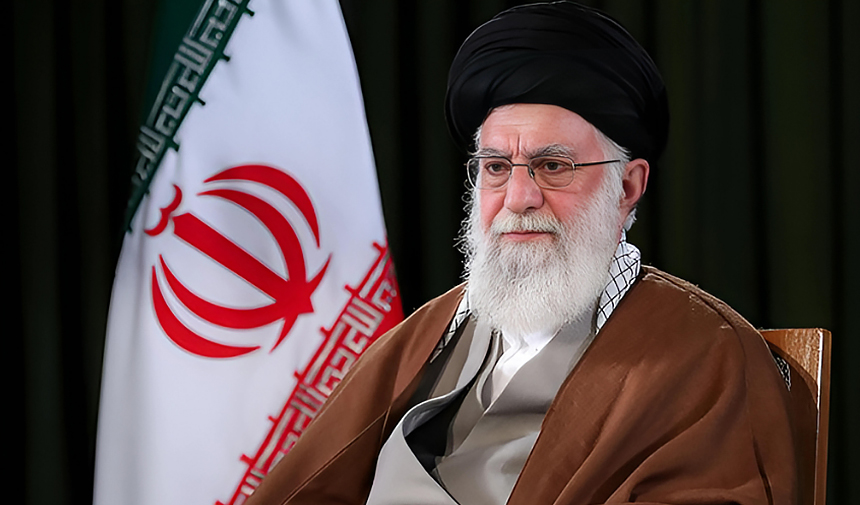Critical Statement from Iran, Khamenei Moved to Safe Zone
Iran held a high-level security meeting as tensions in the region escalated. The meeting evaluated Israel’s attacks on Beirut and its surroundings in particular. While the claims that Hezbollah leader Hassan Nasrallah in Lebanon was killed received great attention from Iran, it was announced that Iran’s religious leader Ayatollah Ali Khamenei was moved to a safe zone. These developments are further shaking the balances in the region.
Strong Statements from the Iranian Parliament
The Iranian Parliament’s National Security and Foreign Policy Commission convened to evaluate the latest developments in the region. Commission Spokesperson Ebrahim Rezai condemned the attacks carried out by Israel in the suburbs of Beirut, stating that these attacks would bring about the end of the Zionist regime. Rezai stated that the crimes committed by Israel in the region were now nearing an end and that the events in the region were the beginning of an end for Israel.
Rezai’s statements came after Israel’s operations in Lebanon and allegations that Hezbollah leader Nasrallah had been killed. The attacks on Hezbollah, one of Iran’s biggest allies in the region, had a profound impact on the Tehran administration. Although Iran has not officially confirmed Nasrallah’s death, security measures in Iran have been increased following this development.
Khamenei Moved to a Safe Zone
Iranian sources announced that religious leader Ayatollah Ali Khamenei has been moved to a safe zone. This step shows that tensions have risen in Iran following the developments in Lebanon. In a statement he made following Nasrallah’s death, Khamenei said, “All the forces of the resistance will stand by Hezbollah and oppose Israel.”
Khamenei’s move to a safe zone is considered an indication that Iran is taking precautions against possible attacks. At a time when the delicate balances in the region continue to be shaken, Iran taking such a major step signals that tensions could rise even further.
Response from Israel: We Will Reach Out to Everyone
Israeli Chief of Staff Herzi Halevi issued a stern warning following his statement confirming the killing of Nasrallah. Halevi emphasized that the operations were not over, stating that they would reach out to anyone who threatened Israeli citizens. Halevi’s statements mean that Israel may expand its operations against Hezbollah.
Such statements further increase tensions in the region. Speculation has increased, especially about what retaliation Hezbollah may carry out against Israel. While the Israeli army continues its operations in Lebanon, it does not seem possible for tensions in the region to ease in the short term.
Iran and Resistance Movements in the Region
Iran continues to be one of Hezbollah’s strongest supporters in the region. The killing of Nasrallah seems likely to further solidify Iran’s support for resistance movements in the region. Khamenei’s statement that “the resistance forces will stand by Hezbollah” is being evaluated as a sign that Iran may play a more active role in the region.
Iran has been supporting various resistance movements, especially the Hezbollah movement in Lebanon, against Israel for many years. The killing of Nasrallah could weaken these movements, and could also lead to Iran providing more support to the resistance forces in the region.
International Reactions
The increasing tension between Iran and Israel has also found resonance in the international arena. Many countries are calling on the parties to exercise restraint and hope that the conflicts in the region will end without causing more loss of life. However, the harsh statements of both Iran and Israel and the increasing military activity in the region show that a solution is difficult to achieve in the near future.
While the United Nations emphasizes that the humanitarian crisis in the region is deepening and that civilians in particular must be protected, many countries have called on Israel and Iran to seek a solution through diplomatic channels. However, Israel’s attacks targeting Hezbollah and Iran’s support for the movement are weakening the possibility of a diplomatic solution.
Conclusion
Israel’s announcement that Hezbollah leader Hassan Nasrallah in Lebanon had been killed has had a great impact in Iran. Iranian Supreme Leader Ayatollah Ali Khamenei was moved to a safe zone, while the message that Iran will continue to support Hezbollah was given. These developments have further increased tensions in the Middle East, while the international community’s calls for an end to the conflict have so far not been met.



